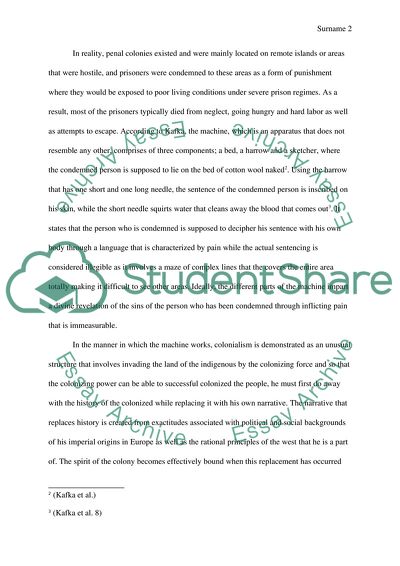Kafkas Critique of Colonialism and Imperialism in the Penal Colony Assignment Example | Topics and Well Written Essays - 1500 words. https://studentshare.org/literature/1854495-kafkas-in-the-penal-colony
Kafkas Critique of Colonialism and Imperialism in the Penal Colony Assignment Example | Topics and Well Written Essays - 1500 Words. https://studentshare.org/literature/1854495-kafkas-in-the-penal-colony.


